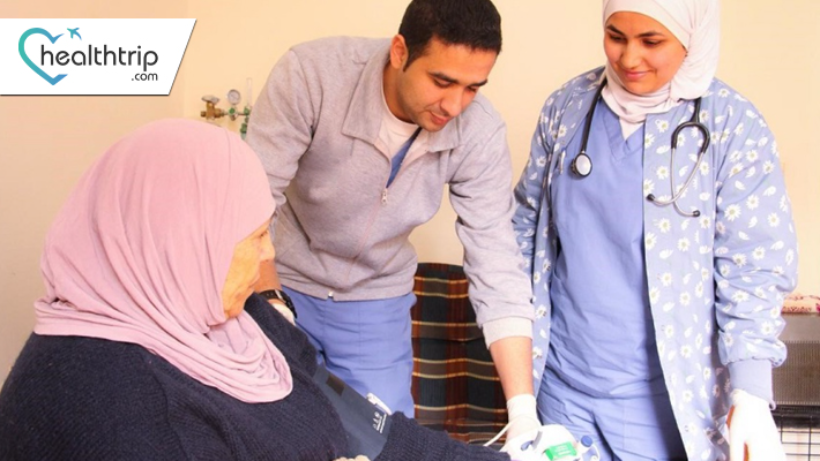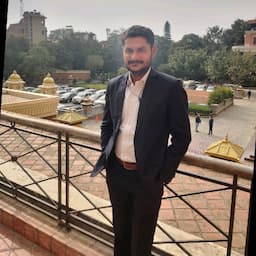
Bridging Cultures: How Thai Medical Institutions Cater to Middle Eastern Needs
25 Sep, 2023
 Obaidullah Junaid
Obaidullah JunaidIntroduction
In today's interconnected world, the need for culturally sensitive healthcare services has never been more important. Medical tourism is on the rise, with people traveling internationally in search of high-quality medical care at a fraction of the cost they might incur in their home countries. Among those seeking healthcare abroad, Middle Eastern patients have increasingly turned their attention to Thailand. This trend highlights the success of Thai medical institutions in bridging cultures and accommodating the unique needs of Middle Eastern patients.
The Appeal of Thai Healthcare
Thailand's reputation as a medical tourism destination is well-deserved. The country boasts world-class medical facilities, highly trained medical professionals, and state-of-the-art technology. However, what truly sets Thailand apart is its ability to adapt and cater to the diverse cultural, religious, and dietary needs of Middle Eastern patients.
Transform Your Beauty, Boost Your Confidence
Find the right cosmetic procedure for your needs.

We specialize in a wide range of cosmetic procedures

A. Halal-Friendly Facilities
1. Islamic Dietary Adherence
One of the most significant considerations for Middle Eastern patients is adherence to Halal dietary laws. Thai medical institutions have risen to the occasion by providing Halal-friendly menus for patients. These menus strictly adhere to Islamic dietary guidelines, ensuring that Middle Eastern patients can maintain their religious practices during their stay.
2. Separate Halal Food Preparation
Additionally, Halal food is prepared separately to avoid any contamination with non-Halal ingredients.
B. Gender-Specific Care
1. Preferences for Healthcare Providers
Many Middle Eastern patients, particularly those from conservative cultures, may have specific preferences when it comes to the gender of their healthcare providers. Thai medical institutions respect these preferences and offer gender-specific care whenever possible. Female patients, for example, can request female doctors and nurses, ensuring their comfort and cultural sensitivity.
C. Prayer Facilities and Religious Observance
1. Dedicated Prayer Spaces
For devout Muslims, daily prayers are an essential part of life. Thai medical institutions recognize this and provide designated prayer rooms and prayer mats to accommodate their spiritual needs.
2. Support for Mosque Visits
Moreover, hospitals often offer assistance in arranging transportation to local mosques for Friday prayers, fostering a supportive environment for religious observance.
D. Multilingual Staff
Effective communication is crucial in healthcare. To bridge the language barrier, Thai medical institutions often employ multilingual staff, including Arabic-speaking doctors and nurses. This ensures that Middle Eastern patients can comfortably communicate their symptoms and concerns, leading to better healthcare outcomes.
Most popular procedures in India
Total Hip Replacemen
Upto 80% off
90% Rated
Satisfactory

Total Hip Replacemen
Upto 80% off
90% Rated
Satisfactory

Total Hip Replacemen
Upto 80% off
90% Rated
Satisfactory

ANGIOGRAM
Upto 80% off
90% Rated
Satisfactory

ASD Closure
Upto 80% off
90% Rated
Satisfactory

E. Cultural Sensitivity Training
1. Effective Communication
To enhance the patient experience, Thai medical staff undergo cultural sensitivity training. This training equips them with the knowledge and skills needed to understand and respect the cultural norms, customs, and traditions of Middle Eastern patients. It also helps them navigate potential cultural misunderstandings and deliver care with empathy.
F. Extended Family Accommodation
1. Recognizing Family Role
In many Middle Eastern cultures, family plays a vital role in healthcare decisions and patient support. Thai medical institutions recognize this and offer accommodation options that cater to larger family groups. This ensures that patients can have their loved ones close by during their medical journey. Expanding on this success, Thai medical institutions are continually working to further enhance their services and cater to the unique needs of Middle Eastern patients. Here are a few initiatives that demonstrate their ongoing commitment:
G. Cultural Awareness Workshops:
1. Understanding Middle Eastern Cultures
Thai hospitals regularly organize cultural awareness workshops and training sessions for their staff. These workshops delve deeper into the nuances of Middle Eastern cultures, helping healthcare providers better understand patients' values, traditions, and expectations.
H.Arabic-Language Services:
1. In-Person and Telemedicine Services
Recognizing the importance of effective communication, many Thai medical institutions now offer Arabic-language services not only in-person but also through telemedicine platforms. This ensures that patients can receive medical advice and consultations in their native language, regardless of geographical distance.
I. Cultural Liaison Officers:
1. Intermediaries for Cultural Differences
Some hospitals have introduced the role of cultural liaison officers who serve as intermediaries between Middle Eastern patients and medical staff. These officers help patients navigate cultural differences, provide emotional support, and ensure that religious and dietary needs are met during their hospital stay.
J. Tailored Medical Packages:
1. Specialized Healthcare Services
To attract more Middle Eastern patients, Thai hospitals have developed specialized medical packages that take into account the most common healthcare needs of this demographic. These packages often include services such as elective surgeries, wellness check-ups, and specialized treatments, all designed with cultural sensitivity in mind.
K. Collaborations with Middle Eastern Healthcare Providers:
1. Exchange of Medical Expertise
Thai medical institutions are forging partnerships with hospitals and healthcare providers in the Middle East. These collaborations facilitate the exchange of knowledge, medical expertise, and best practices, ultimately benefiting patients from both regions.4
L. Feedback Mechanisms:
1. Continuous Improvement
Continuous improvement is vital in healthcare. Thai medical institutions actively seek feedback from Middle Eastern patients to identify areas where they can further improve their services. Patient feedback is used to refine processes, enhance cultural sensitivity training, and tailor services to evolving needs.
Conclusion
In conclusion, Thai medical institutions have not only recognized the importance of catering to Middle Eastern patients but have taken proactive steps to create an inclusive and culturally sensitive healthcare environment. Their efforts serve as a shining example of how healthcare providers can bridge cultures and adapt to the unique needs of a diverse patient population.
As the global healthcare landscape continues to evolve, the success of Thai medical institutions in catering to Middle Eastern needs underscores the broader trend towards patient-centric care and the importance of cultural competence in healthcare delivery. By embracing diversity and fostering an environment of respect and understanding, these institutions are contributing to a more inclusive and compassionate healthcare system that benefits patients from all corners of the world.
Wellness Treatment
Give yourself the time to relax
Lowest Prices Guaranteed!

Lowest Prices Guaranteed!





